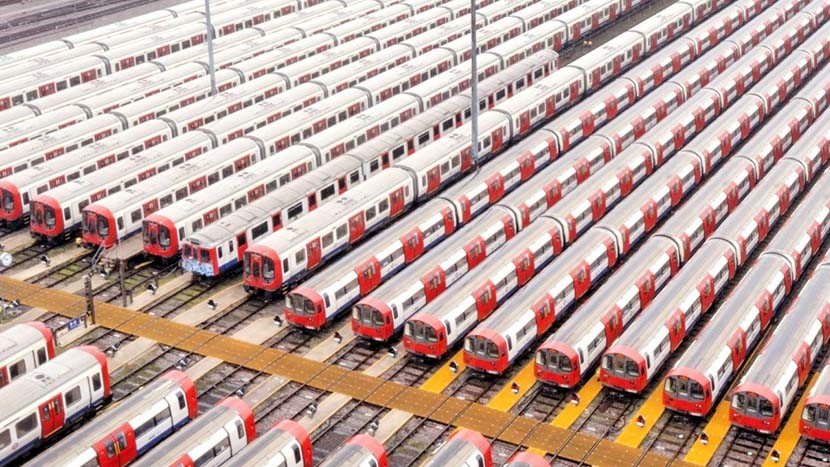Report by Kamgar Ekta Committee (KEC) correspondent

Train drivers of state-owned Deutsche Bahn (DB) in Germany went on a nationwide 3-day strike from 9 January to 11 January 2024 under the banner of the German Train Drivers’ Union (GDL). Their main demands are a reduction in working hours from 38 to 35 hours per week and an increase in pay of 555 Euros per month along with a one-off inflation compensation bonus of 3,000 euros.
It is the third and largest strike by the drivers since their union took up negotiations with DB and other carriers in November last year.
The dissatisfaction among railway workers is very high. After two 24-hour warning strikes in November and December, 97 percent of workers voted in favour of an indefinite strike in the ballot conducted by the GDL. “We are not just striking for pay rises, but for better working conditions and planning security,” said one train driver, summarising the workers’ mood.
Their working conditions have not improved since the last strike three years ago. They have actually worsened. Drivers are still working highly irregular shifts day and night without being adequately rewarded by the DB.
A young driver operating InterCity Express (ICS) trains said: “I work up to six days a week. One shift lasts up to 12 hours. Sometimes we only have half a day’s break and then it’s straight back to work. Shifts can sometimes start at three in the morning. There are often changes at short notice because there is not enough staff. That’s mentally very stressful.”
He continued, “It still happens that you have an early shift on Mondays, a late shift on Tuesdays, and a night shift on Wednesdays. That completely disrupts your biorhythm.” He earns between €2,350 and a maximum of €2,600 net per month, he continued. Yet train drivers like him are responsible for driving ICE trains safely across the whole of Germany, with trains carrying up to 1,000 passengers. “We simply deserve more!” he said emphatically.
The management had tried unsuccessfully to have the strike banned by the courts.
The DB management has only offered an 11 percent pay “increase”—to run for 32 months, which amounts to no more than 3.7 percent per year. Given the very high inflation in Germany, this amounts to a massive reduction in real wages.
